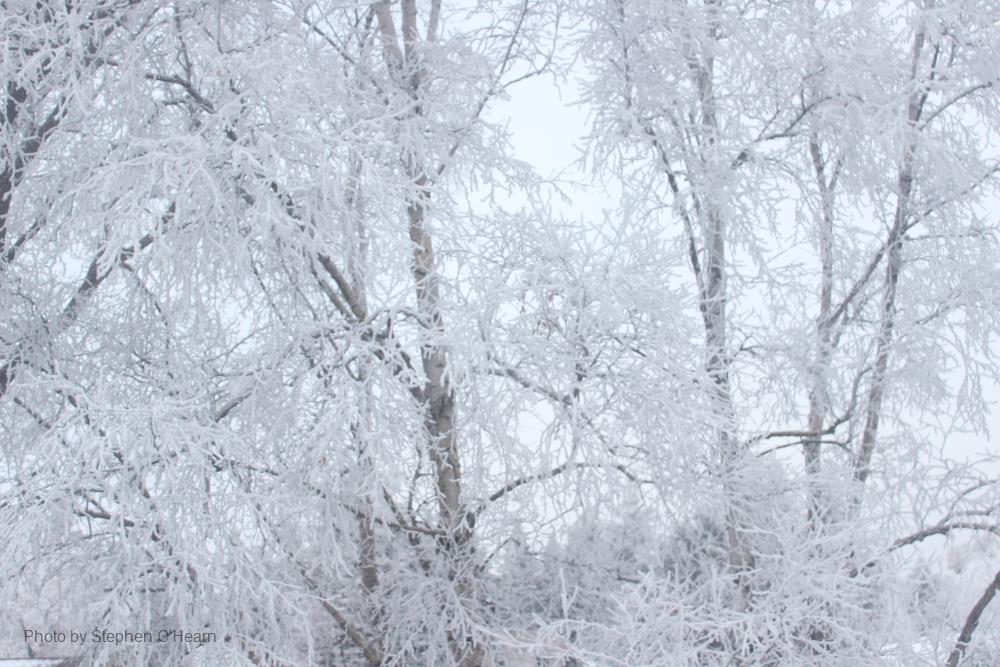
Related items loading ...
Section 1: Project Information
Project Name
CCRN: Changing Cold Regions Network
Led by
|
|
Lead 1
|
Lead 2
|
Lead 3
|
Lead 4
|
|
Name
|
Howard Wheater
|
|
|
|
|
Institution
|
University of Saskatchewan
|
|
|
|
|
Role
|
PI
|
|
|
|
|
Contact Information
|
howard.wheater@usask.ca
|
|
|
|
Classification (e.g., "GWF Pillar 3", "CCRN", etc.)
Legacy
Project Websites
Project Description
Special Issue of Hydrology and Earth System Sciences (HESS)
Understanding and predicting Earth system and hydrological change in cold regions
(edited by S. Carey, C. DeBeer, J. Hanesiak, Y. Li, J. Pomeroy, B. Schaefli, M. Weiler, and H. Wheater):
https://hess.copernicus.org/articles/special_issue919.html
Short description: CCRN observes, diagnoses, and predicts environmental change in the Saskatchewan and Mackenzie River Basins.
To integrate existing and new sources of data with improved predictive and observational tools to understand, diagnose and predict interactions amongst the cryospheric, ecological, hydrological, and climatic components of the changing Earth system at multiple scales, with a geographic focus on Western Canada’s rapidly changing cold interior.
The cold interior of Western Canada east of the Continental Divide has one of the world's most extreme and variable climates and is experiencing rapid environmental change. In a region which includes a multiplicity of globally-important natural resources and sustains 80% of Canada's agricultural production, changing climate is changing the land, its vegetation and its water. There is an urgent need to understand the nature of these changes, and to develop the improved modelling tools needed to manage uncertain futures. The CCRN brings together the unique expertise of a team of 50 university and government scientists and international collaborators from multiple disciplines to address these challenging and globally-important issues.
CCRN integrates existing and new experimental data with modelling and remote sensing products to understand, diagnose and predict changing land, water and climate, and their interactions and feedbacks, for this important region. CCRN uses a network of world class Water, Ecosystem, Cryosphere, and Climate (WECC) observatories to study the detailed connections among changing climate, ecosystems and water in the permafrost regions of the Sub-arctic, the Boreal Forest, the Western Cordillera, and the Prairies. CCRN integrates these and other data to understand the changing regional climate and its effects on large-scale Earth system change and the region's major rivers - the Saskatchewan, Mackenzie and Peace-Athabasca.
Current ability to model these effects is limited, yet models are essential to understand and manage change. CCRN works with government, industry, water managers, First Nations communities and other stakeholders to deliver the improved hydrological, ecological and climate modelling tools needed to understand, predict and manage uncertain climate and water futures. CCRN addresses issues of importance not only to Canada, but also the world, and continues to contribute to the work of Canada's Federal, Provincial and Territorial governments, NASA and the Canadian Space Agency, and the World Climate Research Programme.
Project Participants
|
Howard Wheater | PI | see above |
Jennifer Baltzer | Co-PI | Associate Professor and Canada Research Chair in Forests and Global Change, Department of Biology, Wilfrid Laurier University |
Aaron Berg | Collaborator | Associate Professor, Department of Geography, University of Guelph |
Andy Black | Collaborator | Professor, Faculty of Land and Food Systems, University of British Columbia |
Sean Carey | Collaborator | Professor, School of Geography and Earth Sciences, McMaster University |
John Hanesiak | Collaborator | Professor, Department of Environment and Geography, University of Manitoba |
Masaki Hayashi | Collaborator | Professor and Canada Research Chair in Physical Hydrology, Department of Geoscience, University of Calgary, |
Warren Helgason | Collaborator | Associate Professor, Department of Civil and Geological Engineering, University of Saskatchewan |
Andrew Ireson | Collaborator | Assistant Professor, School of Environment and Sustainability and the Global Institute for Water Security, University of Saskatchewan |
Edward Johnson | Collaborator | Professor and Director of Biogeoscience Institute, Department of Biological Sciences, University of Calgary |
Jill Johnstone | Collaborator | Associate Professor, Department of Biology, University of Saskatchewan |
Yanping Li | Collaborator | Assistant Professor, School of Environment and Sustainability and the Global Institute for Water Security, University of Saskatchewan |
Phil Marsh | Collaborator | Professor and Canada Research Chair in Cold Regions Water Science, Department of Geography and Environmental Studies, Wilfrid Laurier University |
Shawn Marshall | Collaborator | Professor and Canada Research Chair in Climate Change, Department of Geography, University of Calgary |
Jeff McDonnell | Collaborator | Professor, School of Environment and Sustainability and the Global Institute for Water Security, University of Saskatchewan |
John Pomeroy | Co-PI | Distinguished Professor and Canada Research Chair in Water Resources and Climate Change, Department of Geography and Planning and Centre for Hydrology, University of Saskatchewan |
William Quinton | Collaborator | Associate Professor and Canada Research Chair in Cold Regions Hydrology, Department of Geography and Environmental Studies, Wilfrid Laurier University |
Saman Razavi | Collaborator | Assistant Professor, School of Environment and Sustainability and the Global Institute for Water Security, University of Saskatchewan, |
Ronald Stewart | Collaborator | Professor, Department of Environment and Geography, University of Manitoba |
Julie Thériault | Collaborator | Assistant Professor, Département des sciences de la Terre et de l'atmosphère, Université du Québec à Montréal, Montréal |
Merritt Turetsky | Collaborator | ssociate Professor and Canada Research Chair in Integrative Ecology, Department of Integrative Biology, University of Guelph |
Current Status of this Project


 GWFNet
GWFNet Master
Master Data
Data Research
Research Map
Map
 Advanced
Advanced Tools
Tools
 . . .
. . .
 Metadata Editor
Metadata Editor
 Record List
Record List
 Alias List Editor
Alias List Editor
 Legacy sites
Legacy sites